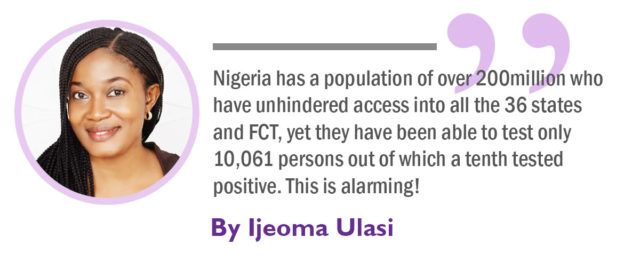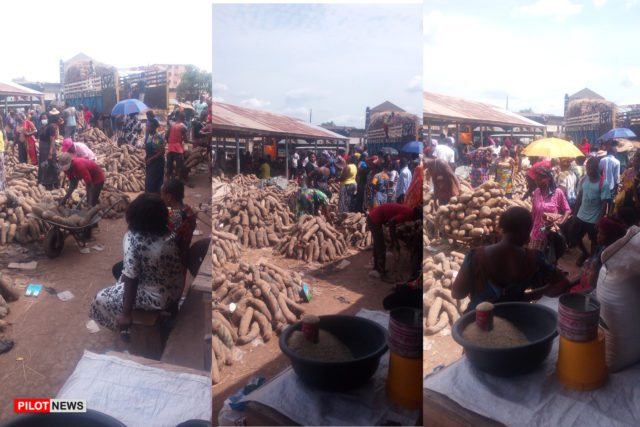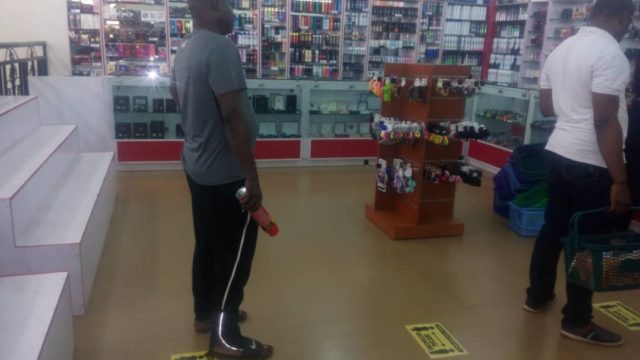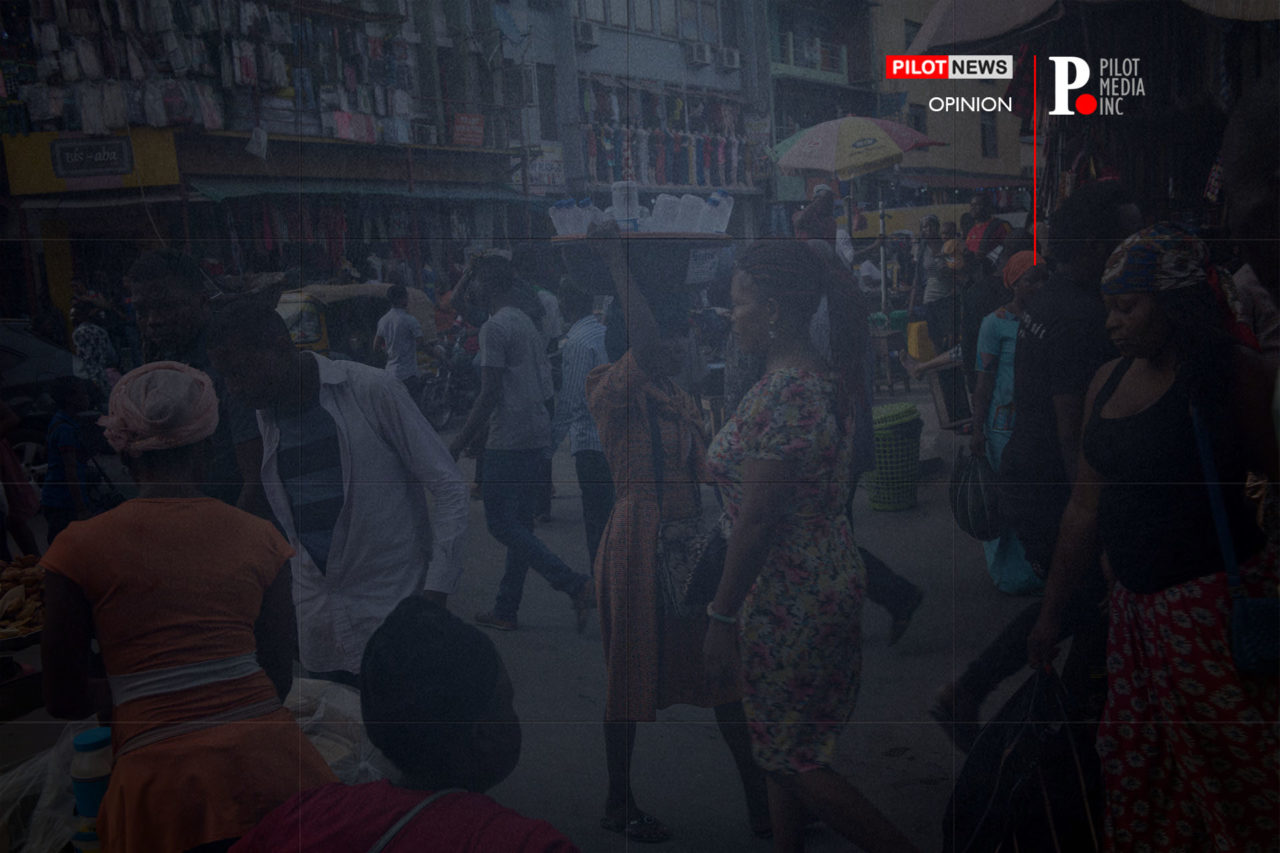Precautionary measures outlined by the Nigeria Centre for Disease Control, NCDC, and awareness level of the dreadful coronavirus may be compromised by years of unhygienic practices and the state of markets in the nation.

A typical market in Nigeria has lock-up stalls built by the government and sold to a few privileged ones while the majority are seen hawking their products which they either carry on their head or wheelbarrows.
These markets know no barrier as all and sundry come there to make their purchases so as to get their money’s worth, as opposed to buying similar products and produce from organised markets: the supermarkets, malls, and the likes.
At the instance of the news of interstate lockdown as announced by the State Governors, the food markets witnessed a high influx of buyers who came to buy food items so that they will not be extinguished by hunger during the 14 days lockdown.
At the instance of the news of interstate lockdown as announced by the State Governors, the food markets witnessed a high influx of buyers who came to buy food items so that they will not be extinguished by hunger during the 14 days lockdown.

Given the teeming population that visits the markets daily and the confined size of the unstructured markets, social distancing precautionary measures are not adhered to.
Haggling of price in a bid for a cut is quite common in such markets, and as such, many are seen in front of a seller haggling for a cut while another impatient person interested in the same produce joins suit at less than one foot away from the other causing a cluster, thereby violating the social distancing rule.
These men come from different homes and states and may likely have come in contact with a COVID-19 patient. They may be asymptomatic and on coming to the market with no social distancing protocol amidst unhygienic practices easily spreading the virus.
A lady who sneezed right into the air instead of a bent elbow as advised and widely advertised was asked why she did so and her response in Igbo language was, “o buro ma e cheta ebe nke bu elbow gi di”, which freely translated means: that’s if you remember to sneeze into bent elbow.
While some sneeze right into the air, others blow their nose without tissue and with their fingers wipe the discharge. Some have a habit of picking their nose and with the same finger, touch unsuspecting and unfortunate persons they come across.
A lady who sneezed right into the air instead of a bent elbow as advised and widely advertised was asked why she did so and her response in Igbo language was, “o buro ma e cheta ebe nke bu elbow gi di”, which freely translated means: that’s if you remember to sneeze into bent elbow.

As at 11.30 pm on April 24, 2020, cases in Nigeria as revealed by NCDC increased by 114, bringing the total sum of samples tested to 10,061. While there were 1,095 confirmed cases, 208 have been discharged and 32 deaths recorded; the cases were recorded from 27 states and the Federal Capital Territory, Abuja.
Compared to records of cases in other regions of the world, the African region is lowest but not a thing for us to rejoice about and throw caution to the wind because not much persons have the luxury of being tested.
Nigeria has a population of over 200million who have unhindered access into all the 36 states and FCT, yet they have been able to test only 10,061 persons out of which a tenth tested positive. This is alarming!
Almost on a daily basis, trailer loads of farm produce are transported specially from the North to the East and other parts of the country. These trailers come in with at least 2 persons and the driver. Some may have persons hidden within the items just to beat the law enforcement agencies at the checkpoints as reported by the military at Nsukka checkpoint in Enugu State.
Any or some of these men could be asymptomatic and on getting to the markets not only discharge their goods but sit closely with their buyers exchanging pleasantries and money.
The number is expected to rise if the government fails to strategically put up a plan that will accommodate peculiarities of the Nigerian state. It is time for our government to rise to the occasion; advocacy meetings with the traditional rulers, National Union of Road Transport Workers, NURTW, Traders Associations, Religious bodies, and the likes.
Such meetings will help these associations trusted by their members and armed with the knowledge of the market terrains to proffer and execute decisions reached.
A trip to a popular food market, Gariki Market in Enugu revealed that less than two percent of the population in the market wear face masks and hand gloves.
A trip to a popular food market, Gariki Market in Enugu revealed that less than two percent of the population in the market wear face masks and hand gloves.
No water pump and soap or hand sanitiser was seen anywhere around the market as is observed at organised settings like the malls and chain stores where they improvised fixing a tap in a bucket filled with water and soap.
At a popular store in Enugu, Roban Stores, at short intervals using amplified speakers, customers are reminded to observe social distancing and other hygienic protocols. This is quite commendable and can be replicated in the markets using our local gong or bells to draw attention.
- Anambra 2025 Governorship Election Might Be an Open Contest - April 24, 2024
- Anambra Assembly Passes Bill To Prohibit Secret Cults - April 24, 2024
- 2024 Aguata NBA Law Week: AG, Prof. Ifemeje Touts Landmarks and Expectations - April 19, 2024


